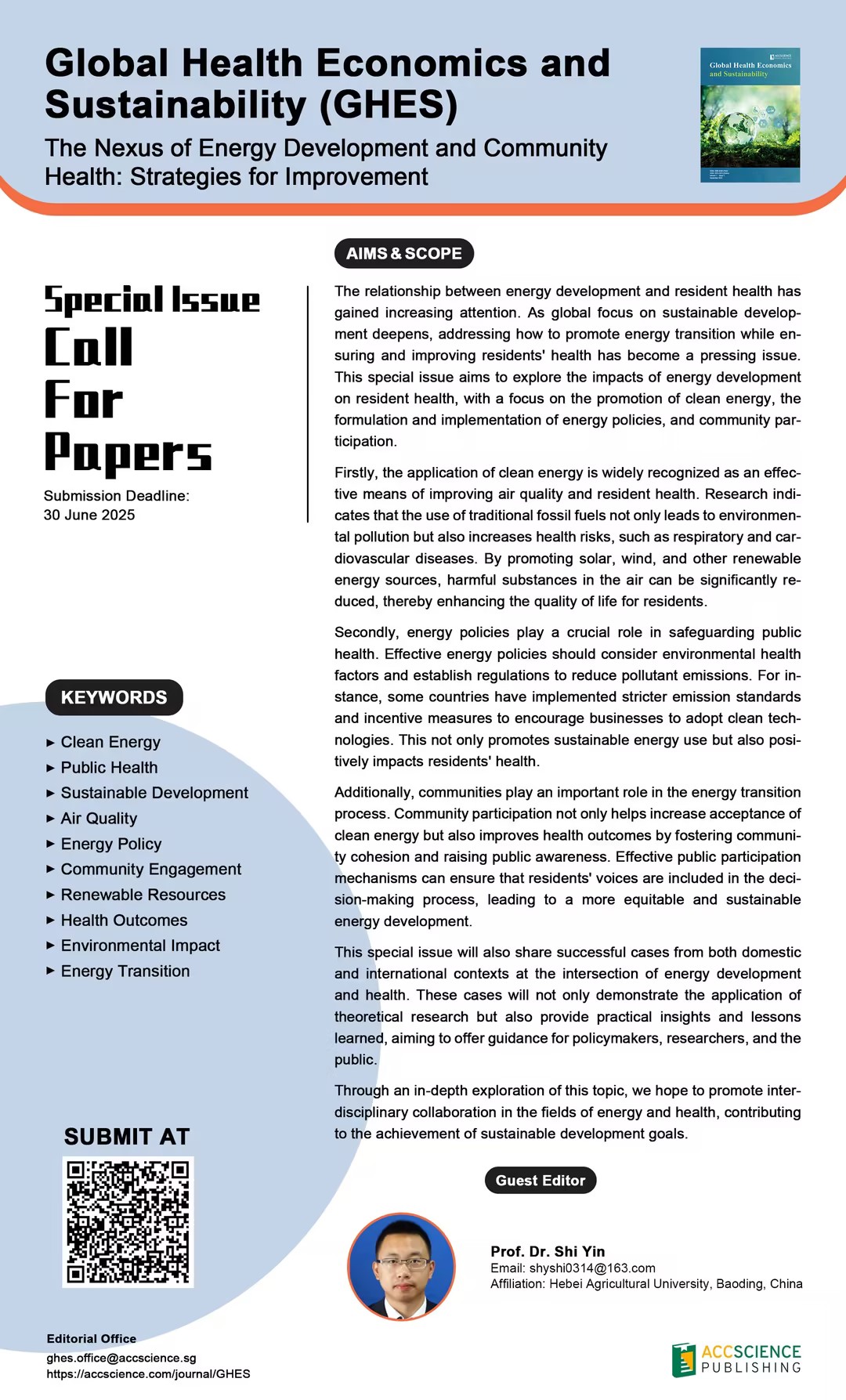
College of Economics and Management, Hebei Agricultural University, Baoding, ChinaDigital innovation management; Knowledge management; Energy and environmental assessment; Green innovation processes; Digital transformation; Green manufacturing; Environmental sustainability; Sustainable process engineering; Industrial engineering; Healthcare big data; Social network data analysis and mining; Fuzzy rule based systems

The relationship between energy development and resident health has gained increasing attention. As global focus on sustainable development deepens, addressing how to promote energy transition while ensuring and improving residents' health has become a pressing issue. This special issue aims to explore the impacts of energy development on resident health, with a focus on the promotion of clean energy, the formulation and implementation of energy policies, and community participation.
Firstly, the application of clean energy is widely recognized as an effective means of improving air quality and resident health. Research indicates that the use of traditional fossil fuels not only leads to environmental pollution but also increases health risks, such as respiratory and cardiovascular diseases. By promoting solar, wind, and other renewable energy sources, harmful substances in the air can be significantly reduced, thereby enhancing the quality of life for residents.
Secondly, energy policies play a crucial role in safeguarding public health. Effective energy policies should consider environmental health factors and establish regulations to reduce pollutant emissions. For instance, some countries have implemented stricter emission standards and incentive measures to encourage businesses to adopt clean technologies. This not only promotes sustainable energy use but also positively impacts residents' health.
Additionally, communities play an important role in the energy transition process. Community participation not only helps increase acceptance of clean energy but also improves health outcomes by fostering community cohesion and raising public awareness. Effective public participation mechanisms can ensure that residents' voices are included in the decision-making process, leading to a more equitable and sustainable energy development.
This special issue will also share successful cases from both domestic and international contexts at the intersection of energy development and health. These cases will not only demonstrate the application of theoretical research but also provide practical insights and lessons learned, aiming to offer guidance for policymakers, researchers, and the public.
Through an in-depth exploration of this topic, we hope to promote interdisciplinary collaboration in the fields of energy and health, contributing to the achievement of sustainable development goals.

